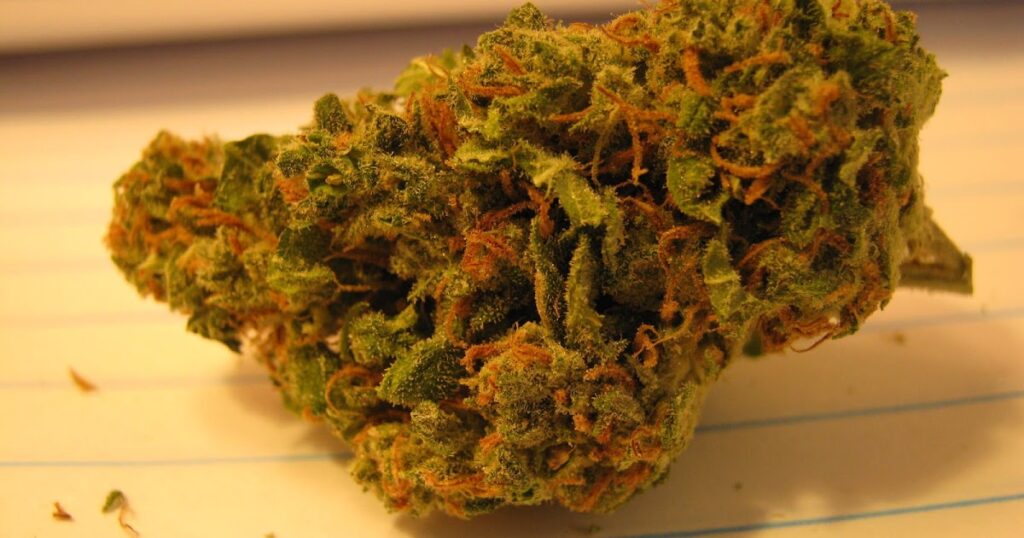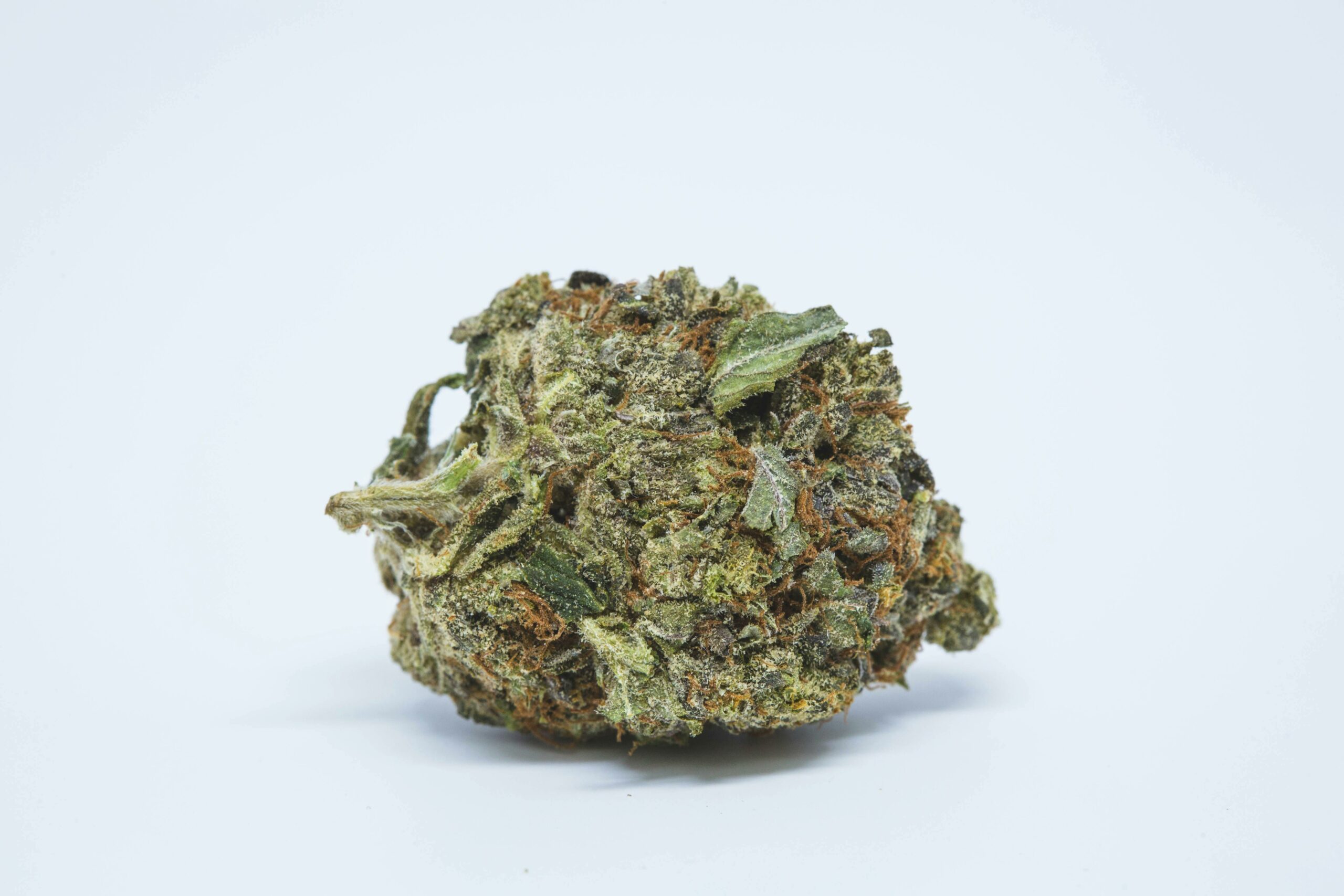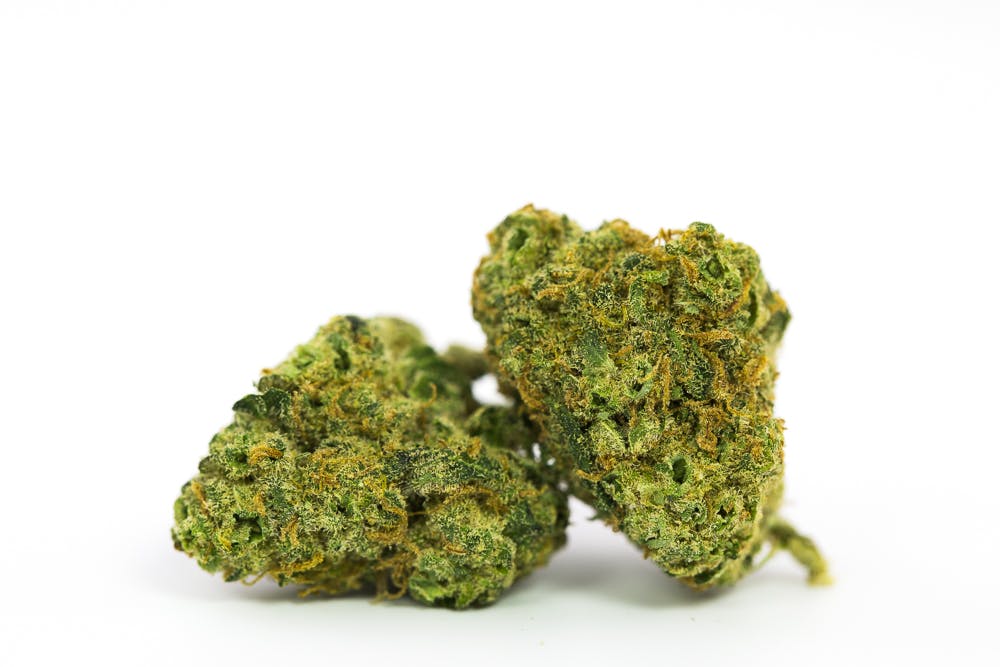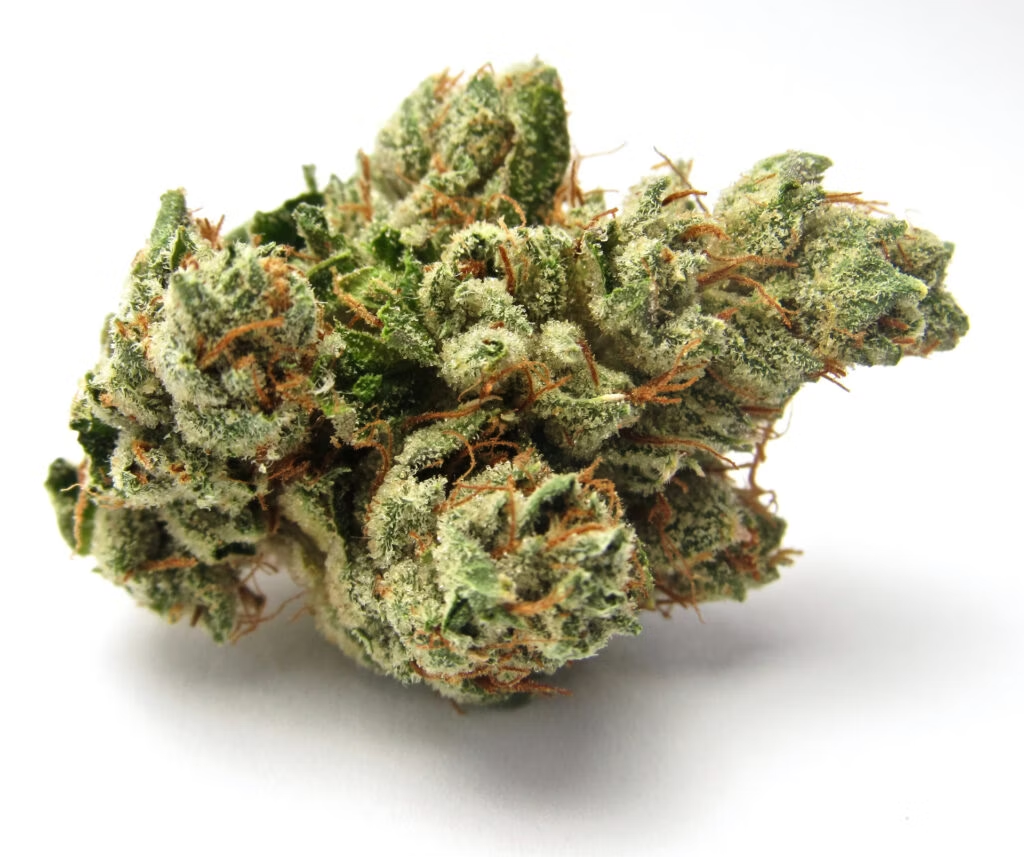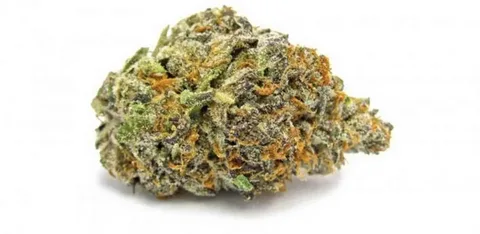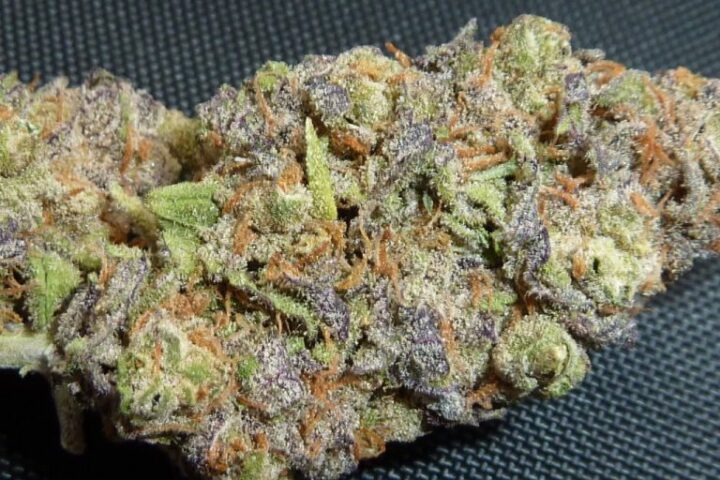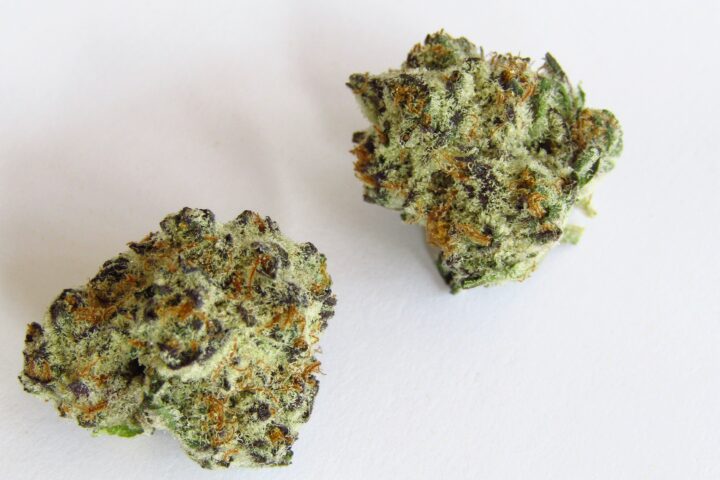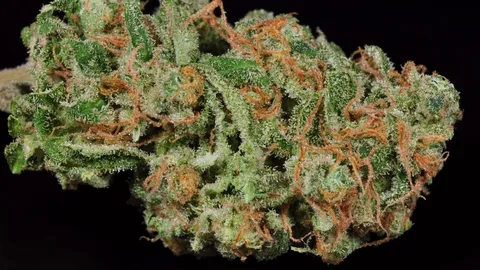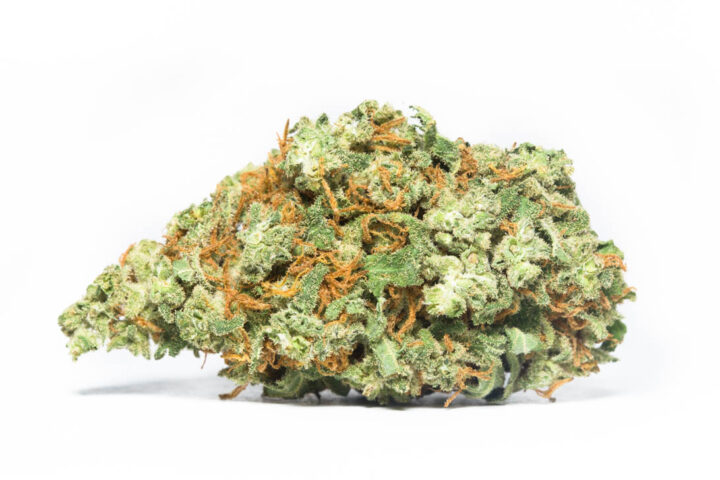About Shiva Skunk
Origin and Genetics
- The Shiva Skunk weed strain is a popular cannabis variety that originated from the breeder, Neville Schoenmakers, who is also the founder of the Sensi Seeds company.
- The genetics behind Shiva Skunk are complex and involve a combination of three different parent strains: Northern Lights #1, Shiva, and Afghani Hawaiian.
- Northern Lights #1 is a renowned indica-dominant strain known for its potent effects and compact growth habit.
- Shiva, on the other hand, is an ancient indica strain that originated in Afghanistan and is prized for its robust flavor and high yields.
- Afghani Hawaiian is a more recent creation, developed by crossing an Afghani indica with a Hawaiian sativa.
- This combination of parent strains gives Shiva Skunk its unique characteristics, which include a pungent aroma, high THC content, and a balanced effect that combines elements of both indica and sativa varieties.
- Shiva Skunk is known for its high yields, with plants capable of producing up to 500 grams of dried flowers per square meter under optimal growing conditions.
- The strain’s growth pattern is described as bushy, with a moderate height range that makes it suitable for indoor and outdoor cultivation alike.
- Shiva Skunk is a popular choice among growers due to its robustness and ease of cultivation, making it a great option for those looking to cultivate high-quality cannabis in a home grow environment or in commercial settings.
- In terms of flavor, Shiva Skunk is known for its pungent aroma that combines elements of skunk, earthy notes, and a hint of sweetness.
- The effects of Shiva Skunk are described as balanced, with both indica and sativa characteristics contributing to its unique profile.
- The strain’s THC content is reported to be relatively high, making it a great choice for those seeking a potent cannabis experience.
- Overall, the genetics behind Shiva Skunk make it a popular and versatile strain that offers growers and consumers alike a unique combination of flavor, effect, and yield potential.
- Shiva Skunk is a testament to the power of cross-breeding and selection in cannabis, resulting in a truly exceptional variety that continues to be prized by those seeking high-quality cannabis.
Developed by Sensi Seeds, a renowned cannabis breeder
- The Shiva Skunk strain was developed by Sensi Seeds, a well-respected cannabis breeder with a rich history in cultivating top-notch marijuana varieties.
- This exceptional strain is a result of a meticulous breeding process that involved carefully selecting the best traits from its parent strains, resulting in a unique and potent hybrid.
- The name “Shiva Skunk” is derived from the Hindu god Shiva, who is revered for his association with spirituality, healing, and transformation.
- The “Skunk” part of the name refers to the strain’s intense and pungent aroma, reminiscent of a skunk’s infamous odor.
- Shiva Skunk is a sativa-dominant hybrid, which means it has a balanced ratio of THC to CBD, resulting in a powerful yet manageable high.
- This strain is known for its impressive THC content, typically ranging between 15-20%, making it a great option for experienced smokers and those seeking a strong cerebral effect.
- The flavor profile of Shiva Skunk is often described as earthy, with hints of spice, nuttiness, and a subtle sweetness, leaving a long-lasting aftertaste.
- As for its effects, users report feeling energized, focused, and motivated, making it an excellent choice for daytime use or creative activities.
- The medical benefits of Shiva Skunk are also noteworthy, as it has been reported to provide relief from stress, anxiety, and chronic pain, while also promoting improved appetite and sleep quality.
- Due to its high THC content and potent effects, it’s essential to exercise caution when consuming Shiva Skunk, especially for beginners or those sensitive to cannabis.
- Cultivating Shiva Skunk requires a moderate climate with adequate sunlight, water, and nutrients, making it suitable for growers with some experience under their belt.
Result of crossing Afghani and Skunk #1 strains
The Shiva Skunk strain is a potent indica-dominant hybrid that was created by crossing two popular strains, Afghani and Skunk # The result is a plant with a robust flavor profile, high resin production, and an intense psychoactive effect.
As its name suggests, the Shiva Skunk strain has a strong connection to Indian and Middle Eastern cultures, reflecting the origins of its Afghani parent. This influence can be seen in the strain’s earthy, woody undertones and rich, sweet flavor notes.
The Skunk #1 parent is responsible for imparting its characteristic pungency and spicy kick to the Shiva Skunk strain. When combined with the Afghani’s robust indica effects, the result is a balanced yet potent hybrid that offers both relaxation and stimulation.
Shiva Skunk is often used by medical patients seeking relief from chronic pain, insomnia, and anxiety disorders. Its high THC levels and intense psychoactive properties make it an excellent choice for experienced users looking to unwind and relax after a long day.
The Shiva Skunk strain typically blooms within 6-8 weeks indoors, producing large yields of dense, crystal-covered buds. Growers will appreciate its moderate ease of cultivation, making it suitable for both beginners and seasoned cultivators.
With an estimated THC content ranging from 15% to 25%, the Shiva Skunk strain is not for the faint of heart. However, those who are willing to face its intense effects may find themselves rewarded with a euphoric, long-lasting high that promotes deep relaxation and introspection.
The aroma of Shiva Skunk is reminiscent of its parent strains, featuring a sweet, earthy scent with subtle hints of spice and herbal notes. When consumed, the strain’s flavor profile expands, showcasing its full-bodied richness and lingering finish.
In summary, the Shiva Skunk strain offers an unbeatable combination of potency, flavor, and relaxation. With its strong indica effects, robust growth patterns, and long-lasting high, this hybrid has become a favorite among both medical patients and experienced cannabis enthusiasts.
Known for its stable and robust genetics
The Shiva Skunk is a popular cannabis strain that has been around for decades, and its stable and robust genetics have made it a favorite among growers and smokers alike.
Developed by Sensi Seeds, this strain is the result of crossing the infamous Afghani with Skunk No. 1, two highly potent strains in their own right. The combination of these two parent strains has created a phenotype that embodies the best qualities of both, resulting in a stable and reliable plant.
The Shiva Skunk strain is characterized by its distinctive earthy and woody aroma, which is a testament to its Afghani heritage. The flavor profile is equally impressive, with notes of lemon, skunk, and mint. These flavors are complemented by a sweet and slightly bitter aftertaste that lingers long after the smoke has cleared.
The effects of Shiva Skunk are typically described as relaxing and cerebral, with a pronounced sense of calm and focus. This strain is perfect for those seeking to unwind after a long day, or for those looking to enhance their creative pursuits without becoming too lethargic.
One of the primary advantages of Shiva Skunk’s stable genetics is its ability to thrive in a variety of growing conditions. Whether you’re cultivating indoors or outdoors, this strain has proven to be highly adaptable and resilient.
With an average THC content of 15-20%, Shiva Skunk is not for the faint of heart. However, for those who can handle its potency, it offers a truly unforgettable experience that will leave you wanting more.
Cannabinoid and Terpene Profile
Efficacy and Effects
The cannabinoid and terpene profile of a cannabis strain, such as Shiva Skunk, plays a crucial role in determining its efficacy and effects on users.
Cannabinoids are the primary compounds found in the cannabis plant that produce their medicinal effects. The two main types of cannabinoids are THC (tetrahydrocannabinol) and CBD (cannabidiol).
The Shiva Skunk strain is known to have a high THC content, typically ranging from 15% to 22%, which contributes to its psychoactive effects. The THC in this strain provides users with a euphoric and relaxing experience.
CBD, on the other hand, is non-psychoactive and has been known to have therapeutic benefits without the intoxicating effects of THC. Shiva Skunk contains moderate levels of CBD, which complements its THC content to create a balanced effect.
Terpene profile is another vital component that contributes to the efficacy and effects of cannabis strains. Terpenes are aromatic compounds found in the cannabis plant that provide distinct flavors, aromas, and effects.
The terpene profile of Shiva Skunk includes high levels of Pinene, which provides anti-inflammatory properties and is responsible for its pungent aroma. The presence of Caryophyllene contributes to the strain’s earthy and woody notes.
The combination of cannabinoids, particularly THC and CBD, along with the terpene profile, makes Shiva Skunk an effective strain for managing stress, anxiety, and insomnia. It also provides relief from pain and inflammation.
In terms of effects, users report experiencing a euphoric and relaxing sensation after consuming Shiva Skunk, which is often accompanied by reduced muscle tension and improved mood.
However, as with any cannabis strain, individual tolerance and sensitivity to cannabinoids and terpenes may vary. It’s essential to start with low doses and gradually increase consumption to achieve the desired effects while minimizing potential side effects.
High THC content, typically between 1520%
The cannabinoid and terpene profile of a cannabis strain plays a crucial role in determining its effects, aroma, and overall potency. In the case of Shiva Skunk, a popular indica-dominant hybrid, the cannabinoid profile is particularly noteworthy.
Shiva Skunk typically boasts high THC content, ranging between 15-20%. This relatively high THC concentration makes it an excellent choice for experienced smokers seeking a potent experience. The exact THC levels can vary depending on factors such as growing conditions and genetic lineage.
The terpene profile of Shiva Skunk is equally impressive. Terpenes are naturally occurring compounds found in the cannabis plant that contribute to its aroma, flavor, and potential therapeutic effects. Some of the dominant terpenes present in Shiva Skunk include myrcene, limonene, and pinene.
Myrcene is a common terpene found in many cannabis strains, responsible for their earthy or musky aromas. In Shiva Skunk, myrcene contributes to its sweet, herbal, and slightly spicy fragrance.
Limonene is another prominent terpene in Shiva Skunk, known for its citrusy scent and potential therapeutic benefits. This terpene has been linked to stress relief, mood enhancement, and anti-inflammatory properties.
Pinene is a terpene with a distinct pine-like aroma, often associated with mental clarity and focus. Its presence in Shiva Skunk may enhance the strain’s ability to stimulate creativity and reduce anxiety.
The combination of high THC content and a robust terpene profile makes Shiva Skunk an attractive choice for those seeking a potent and potentially therapeutic cannabis experience.
Dominant terpenes include myrcene, limonene, and betapinene
The Cannabinoid and Terpene Profile of Shiva Skunk is a unique combination of compounds that contribute to its distinctive effects and aroma. This strain, known for its potent indica properties, boasts a complex profile that sets it apart from other varieties.
Shiva Skunk’s dominant terpenes include myrcene, limonene, and beta-pinene, which work together to create a balanced and harmonious effect on the body and mind. Myrcene is responsible for the earthy, herbal notes found in Shiva Skunk, while limonene contributes to its citrusy aroma and uplifting effects.
Beta-pinene, another key component of this strain, adds a fresh and woody note that complements myrcene’s earthiness. Together, these terpenes create a well-rounded flavor profile that is both grounding and invigorating.
The Cannabinoid Profile of Shiva Skunk is equally impressive, with a THC content of up to 20% and minimal CBD presence. The high levels of THC ensure that users experience the full potency of this strain, making it an excellent choice for those seeking relief from pain and stress.
Shiva Skunk’s effects are characterized by deep relaxation, reduced anxiety, and a heightened sense of calmness. Its sedative properties make it an ideal nighttime companion, allowing users to unwind and recharge for the next day.
The unique combination of cannabinoids and terpenes in Shiva Skunk contributes to its exceptional therapeutic potential. By understanding and appreciating this complex profile, individuals can harness the full benefits of this strain to improve their overall well-being.
Can produce relaxing, sedating effects with potential pain relief
The Cannabinoid and Terpene Profile of a cannabis strain plays a crucial role in determining its effects on consumers. In the case of Shiva Skunk, a popular indica-dominant hybrid, its profile is as follows
Cannabinoids
THC (Tetrahydrocannabinol): 17-22%
THC is the primary psychoactive compound in cannabis, responsible for the “high” associated with marijuana use. In Shiva Skunk, THC levels are moderate to high, contributing to its relaxing and sedating effects.
Terpene Profile
- Myrcene: 55-60%
Myrcene is the most abundant terpene in Shiva Skunk, responsible for its sedating and pain-relieving properties. Myrcene also contributes to the strain’s earthy and herbaceous aroma.
- Limonene: 15-20%
Limonene is a citrusy terpene that adds a bright, uplifting quality to Shiva Skunk. While its effects are minimal on its own, limonene can enhance the strain’s overall potency and flavor profile.
- Caryophyllene: 5-10%
Caryophyllene is a peppery terpene that adds depth and complexity to Shiva Skunk’s aroma. While its effects are subtle, caryophyllene can enhance the strain’s sedating properties.
- B-pinene: 5%
B-pinene is a piney terpene that contributes to Shiva Skunk’s earthy and herbal aroma. While its effects are minimal, b-pinene can add depth and character to the strain’s flavor profile.
- Cadinene: 2-5%
Cadinene is a woody terpene that adds warmth and spice to Shiva Skunk’s aroma. While its effects are subtle, cadinene can enhance the strain’s overall potency and flavor profile.
In summary, Shiva Skunk’s Cannabinoid and Terpene Profile is characterized by high levels of THC, moderate levels of limonene and b-pinene, and significant amounts of myrcene and caryophyllene. This unique blend of compounds contributes to the strain’s relaxing, sedating effects with potential pain relief.
Cultivation and Growing Tips
Requirements and Considerations
- The cultivation of Shiva Skunk weed requires a thorough understanding of its growth requirements and considerations to ensure optimal yields.
- This strain thrives in temperate climates with moderate temperatures, typically between 65-75°F (18-24°C), during the vegetative stage.
- As it transitions to the flowering stage, Shiva Skunk requires cooler temperatures around 60-70°F (15-21°C) for optimal growth.
- The ideal humidity level is between 40-60%, ensuring a balance that prevents excessive moisture from causing mold and mildew.
- Adequate light exposure is crucial; provide at least 18 hours of light per day, with LED grow lights or HPS being effective options.
- Nutrient-rich soil is essential for healthy growth. Use high-quality potting mix specifically designed for cannabis cultivation, and supplement with balanced fertilizers during the vegetative and flowering stages.
- Water your plants carefully, avoiding overwatering, which can lead to root rot and other issues.
- Adequate air circulation is vital; ensure good airflow around your grow area to prevent fungal diseases.
- Pest control is also important. Regularly inspect your plants for signs of pests and treat promptly if necessary.
- Shiva Skunk weed can be grown indoors or outdoors, depending on local regulations and climate conditions.
- When growing indoors, a controlled environment allows for precise temperature and humidity management, maximizing yields and minimizing risks associated with environmental factors.
- Outdoor growers should choose a location that receives sufficient sunlight and has well-draining soil to minimize the risk of waterlogging and root rot.
- The flowering period typically lasts 7-9 weeks after switching your plants to 12/12 light cycles, during which they will produce dense buds with high THC levels.
- After harvest, properly dry your crop to maintain quality and preserve its potency.
Requires moderate to high levels of care and attention
Cultivating the Shiva Skunk weed strain requires a delicate balance of moderate to high levels of care and attention, as it thrives best in well-ventilated environments with controlled temperature fluctuations.
The ideal growing conditions for this strain include a daytime temperature ranging between 18°C to 22°C (64°F to 72°F), while nighttime temperatures can dip slightly lower, around 15°C to 20°C (59°F to 68°F).
When it comes to humidity levels, Shiva Skunk prefers a relatively high level of moisture in the air, typically between 50% to 60%, during its growth phase.
To ensure optimal results, growers must provide this strain with ample light. Shiva Skunk is considered an indica-dominant hybrid and therefore requires a moderate to high amount of light. Growers should expose their plants to at least 18 hours of light per day using grow lights or natural sunlight, depending on the environment.
It’s also essential for growers to implement a nutrient-rich feeding schedule to promote healthy growth and development. This strain will thrive with regular applications of balanced nutrients during its vegetative growth stage.
However, as Shiva Skunk enters its flowering phase, it may require more precise nutrient management to prevent overfeeding and promote the production of resinous buds.
Carefully monitor your plant’s progress and adjust the feeding schedule accordingly. Additionally, make sure to maintain good hygiene practices by cleaning your equipment regularly to prevent contamination.
A well-balanced pH level between 6.0 and 7.0 is crucial for the optimal growth of this strain. Conduct regular pH checks using a pH meter or testing kits to ensure that the growing medium remains within the recommended range.
During its flowering phase, Shiva Skunk can be susceptible to pests and diseases such as spider mites, mealybugs, and powdery mildew. Regularly inspect your plants for any signs of infestation or disease, taking prompt action if necessary to prevent further damage.
Avoid overwatering, which can lead to root rot and other issues that may compromise the health of this strain.
Lastly, maintain good air circulation around your plants by providing adequate space between them. This will help prevent moisture buildup and reduce the risk of fungal diseases spreading.
Prefers warmer climates with adequate sunlight
Cultivating a healthy and productive Shiva Skunk plant requires careful attention to its environmental needs, as well as regular maintenance and pruning.
Environmental Requirements
The Shiva Skunk strain prefers warmer climates with adequate sunlight to thrive.
Here are the ideal conditions for this strain
- Temperature: Ideal temperatures range from 65-75°F (18-24°C) during the day, and around 55-65°F (13-18°C) at night. Avoid exposing your plant to temperatures below 50°F (10°C).
- Lighting: Provide plenty of direct sunlight for at least 6 hours a day. If you’re growing indoors, use high-quality grow lights with a balanced spectrum.
- Humidity: Maintain relative humidity levels between 40-60%. High humidity can lead to mold and mildew issues.
Nutrition and Watering
Shiva Skunk plants require a balanced diet of nutrients throughout their growth cycle. Here’s a suggested feeding schedule
- Seedling stage (1-2 weeks): Feed with a weak nutrient solution (half the recommended strength) to promote healthy root development.
- Vegetative stage (2-4 weeks): Gradually increase nutrient strength as the plant grows, aiming for a balanced N-P-K ratio of around 20-10-20.
- Flowering stage: Switch to a high-potassium nutrient formula (around 15-30-45) to promote robust flower growth and development.
Water your Shiva Skunk plants thoroughly, allowing the top 1-2 inches of soil to dry out between waterings. Overwatering can lead to root rot and other issues.
Pruning and Training
Regular pruning and training are crucial for a healthy, productive plant
- Limited pruning: Trim your Shiva Skunk plant to maintain an optimal size (around 3-4 feet) and promote even growth.
- Trellising: Train the branches to grow upwards using twine or trellis systems. This will maximize sunlight exposure and promote healthier growth.
Common Issues and Solutions
Familiarize yourself with potential issues that may arise during your Shiva Skunk cultivation
- Pests: Regularly inspect your plants for signs of pests like spider mites, mealybugs, or aphids. Use organic pest control methods whenever possible.
- Diseases: Monitor for symptoms of fungal diseases like powdery mildew, leaf spot, or root rot. Take prompt action by isolating the affected area and adjusting your care routine accordingly.
With careful attention to these environmental and maintenance requirements, you should be able to grow a healthy Shiva Skunk plant with vibrant flowers and potent buds.
Can be susceptible to mold and pests if not properly managed
Cultivating and growing tips are essential for any cannabis grower, particularly when dealing with a delicate strain like Shiva Skunk. This indica-dominant hybrid can be susceptible to mold and pests if not properly managed, making it crucial to pay close attention to temperature, humidity, and air circulation.
First and foremost, choose a high-quality seed or clone that is specifically suited for the grower’s environment. Shiva Skunk requires a warm and humid climate to thrive, with temperatures ranging from 65-75°F (18-24°C) during the day and no lower than 55°F (13°C) at night.
Lighting is also critical when growing Shiva Skunk. This strain prefers bright light but can be sensitive to intense heat, so it’s essential to use LED or HPS grow lights that provide a balanced spectrum without excessive heat buildup.
Water and nutrient management are also vital components of successful cultivation. Shiva Skunk requires a well-draining potting mix and should be watered thoroughly but infrequently to prevent root rot and other issues. A balanced fertilizer program should also be implemented, with regular monitoring of nutrient levels to avoid overfeeding.
Another critical factor in growing Shiva Skunk is humidity control. This strain thrives in a humid environment, typically between 40-60% relative humidity. To achieve this level of humidity, growers can use humidifiers or cover the plants during the day to maintain a consistent moisture level.
Air circulation and pruning are also essential for maintaining healthy plants and preventing mold and pests. Regular pruning of fan leaves will improve air flow and reduce the risk of fungal diseases. Additionally, growers should ensure good air circulation around the plants by opening vents or using fans to circulate air.
Finally, regular monitoring and maintenance are crucial when growing Shiva Skunk. Check plants daily for signs of pests, mold, or disease, and take prompt action if any issues arise. With proper care and attention, growers can successfully cultivate this strain and enjoy its unique benefits.
- Wookies Weed Strain Information - October 9, 2024
- Ya Hemi Aka Yahemi, Ya-Hemi Weed Strain Information - October 9, 2024
- White Cookies Aka White Oreos Weed Strain Information - October 8, 2024

